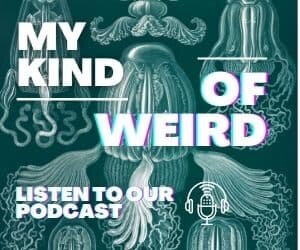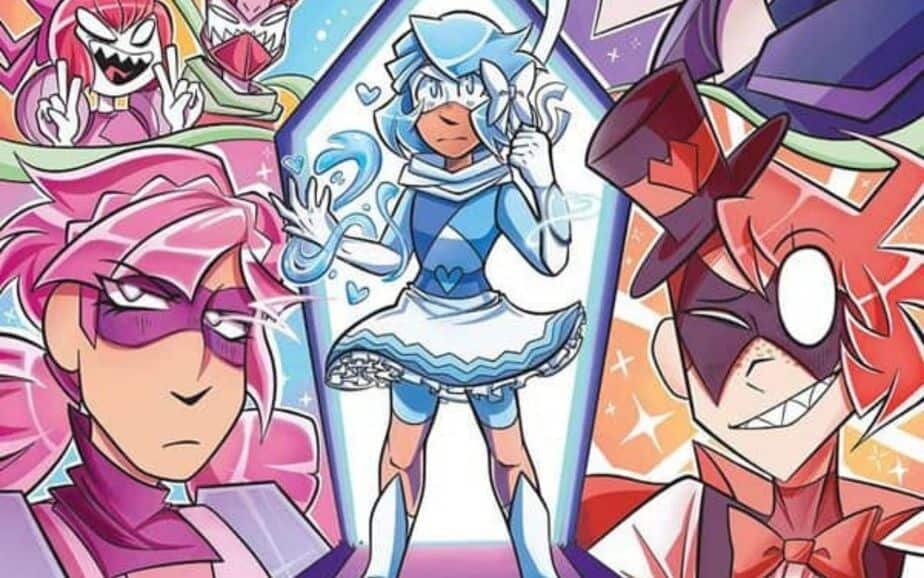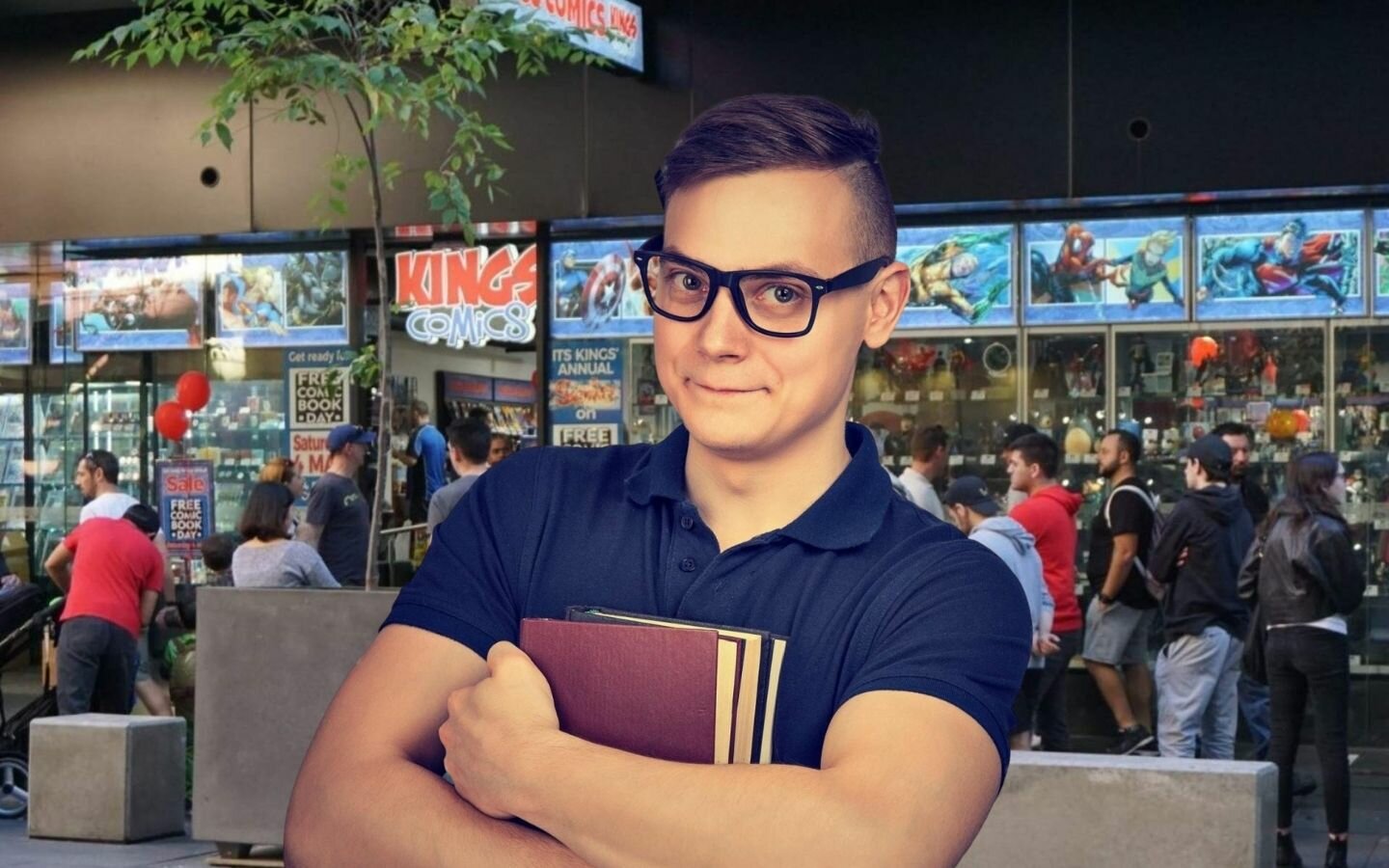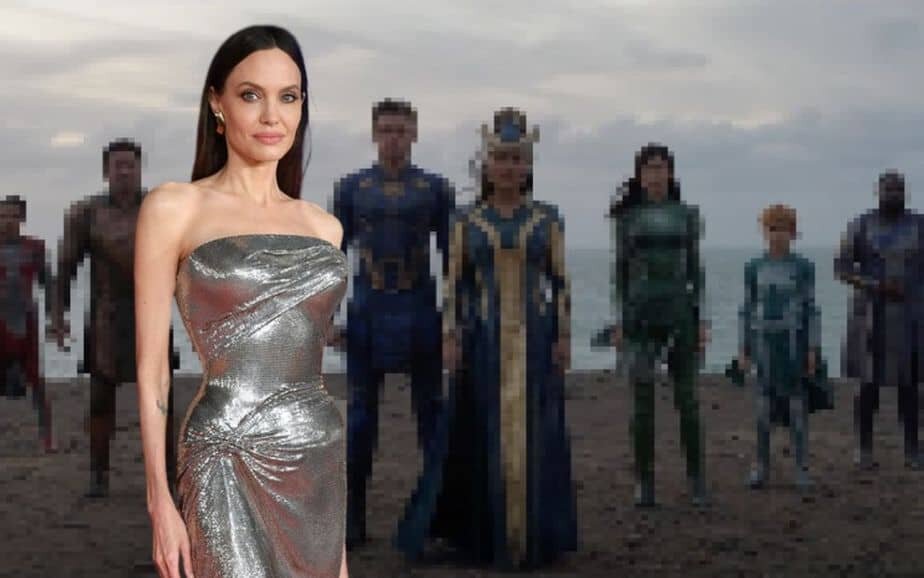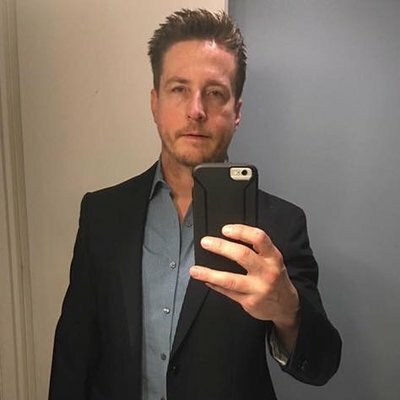
AN INTERVIEW WITH WRITER MATT HAWKINS (TOP COW/IMAGE)
Hi fellow readers, a couple months back my podcast co-host Adam Hyde and I had the chance to talk with Comic Book writer Matt Hawkins about Star Trek Enterprise – Season One.
Before we got onto the utopian-isms and missteps of one of Star Trek’s worst shows, we did a quick interview. You can hear this on the podcast episode or by streaming on the webplayer below. If you enjoy this article then support Matt Hawkins and Top Cow/Image by purchasing The Clock.
Anthony Pollock: How are things going for you over in America?
Matt Hawkins: We’ve crossed 100,000 people dead so I don’t know. I hear Brazil and India are gonna have it worse than we do. I don’t know why it’s hit America so hard. I read some of the foreign press talks about because we’re so fat. I’m really in a place right now where I kind of hate being here because the left and the right battle the blue and the red states.
The constant polarization, the fighting and all this stuff drives me nuts. Not everyone but the bulk of the people have their own little beliefs and facts be damned. I’m talking on both sides of the political fence. It’s not just one party of the other, They’re both doing it and it drives me absolutely nuts. When all I’m trying to do is make comics.
I like telling stories and I’ve always enjoyed working in comics. This my 28th year in the business which is weird. I just hit the big 50 this year. So that’s always a weird one. I can’t believe I’m 50 years old. I don’t use your glasses either. And the other thing is, we can’t, You know, everything Shut down. My hair is I normally keep my hair really short. And this is the longest my hair has been since I think I was in college.
Anthony Pollock: Let’s talk a bit about the clock. The timing for the release and the content of the series is convenient.
Matt Hawkins: You know what’s funny is I wrote the first issue of The Clock 6 years ago and Colleen Doran, who I’ve always wanted to work with. she asked me if I could give her a book that had, like, a a long deadline. So I wrote the first issue of that and gave it to her, and she didn’t work on it for years. And then she started about a year ago, cranking out the pages and, uh so I went back and looked at it, and I think I had just seen that movie ‘Contagion’ and I really liked it.
I started wondering if anyone had ever tried to weaponize cancer. My mom’s had cancer four times. She’s still alive. No one else in my family has ever had it. So I’ve dealt with cancer. And the first time I was told she had cancer was 1986. I was told at that point that she had six months to live because she had a breast cancer. She was one of the very first women in America to get a double mastectomy. So she survived and 40 years later she’s still kicking.
So I started doing research and I went to a biotech conference here in Los Angeles. And there was a section where there was a bunch of cancer researchers in there and I went and sat in on their panel during the Q and A I stood up and walked to the microphone and asked ‘Hey, uh, I’m just curious. Do you know if anyone has ever tried to weaponize cancer? Like, has anyone ever tried to use this? You know, like the Hugo Chavez guy claims that the CIA gave him cancer to kill him, you know.’
And, I’ve never seen a room become more quiet more quickly. I look around there’s like, 40 people looking at me, and I immediately said ‘I’m a writer. I’m just working on a story.’ Then people started laughing but I didn’t realize there were doctors at this conference. And here I am talking about killing people.
But one guy gave me his card, we got on the phone a few times and he explained to me that there have been a few people that have tried. It’s never really worked but then I explained to him the story I wanted to tell. A modern eugenics conspiracy thriller. I always like having stories where scientists are the protagonists because I have a physics degree but I’ve never used it for anything. My dad was a scientist and I’ve been around scientists most of my life and this is the other thing that still blows my mind.
I’ve always been a man of science and, ah, people in this country or anti factors, and I don’t know if you guys have it down there, but I get in arguments with people online about people talk to me about how vaccines kill people. And I’m like, What? You know what? I saw this poll in the news today where only 50% of Americans polled said they would actually take a Covid-19 vaccine. People talk about how they don’t trust science. Meanwhile, I’m like, “What do you mean you don’t trust science?”
I mean, the whole scientific method is the idea of it is you do something that is replicated ble that it can be done by anyone anywhere in the world that can replicate it. And you have this this thing to prove that there’s a whole process of how the scientific method works And eso me, I’m a huge supporter of science. I know people be stuff wrong in science all the time. You living to learn, but for people to be I mean, the fact that science has been politicized now just it just bothers me.
Anthony Pollock: It’s interesting because an Indian doctor put out a letter pointing out how denying oneself a vaccine and anti-vaxxing is a white privilege.
Matt Hawkins: Yeah, unlike politics, science is peer reviewed. There are scientists who posit theories or post things that they want to know if it’s true. It’s not like, “Hey, this is true. Fuck you.” These are the real facts. It’s not like everyone wants to be credited first. Some scientists aren’t really about that. They’re just trying to figure things out and help people.
Anthony Pollock: Coming from that physics background did that prep you for the writing of The Clock? Or did you find that you had to do a lot more in depth research beyond sort of going to that biotech conference?
Matt Hawkins: Well, the research is actually my favorite part on. I read all the science journals. That’s the one advantage I have as a writer. Most people don’t even know where to get them. But I get them mailed to me and I went to UCLA. I’m a member of the American Physical Society, which is the physics group in the United States, which is a weird name because it sounds gym oriented.
I spend months and months doing the research because the research services the core of the plots. Then when I’ve figured that out I’ll I go in and work out all the characters and figure out how.
I think that’s the biggest mistake a lot of people do in writing comics is they spend so much time in the world building that the characters fall flat. If they fall flat then you don’t really have a reason to care for the character.
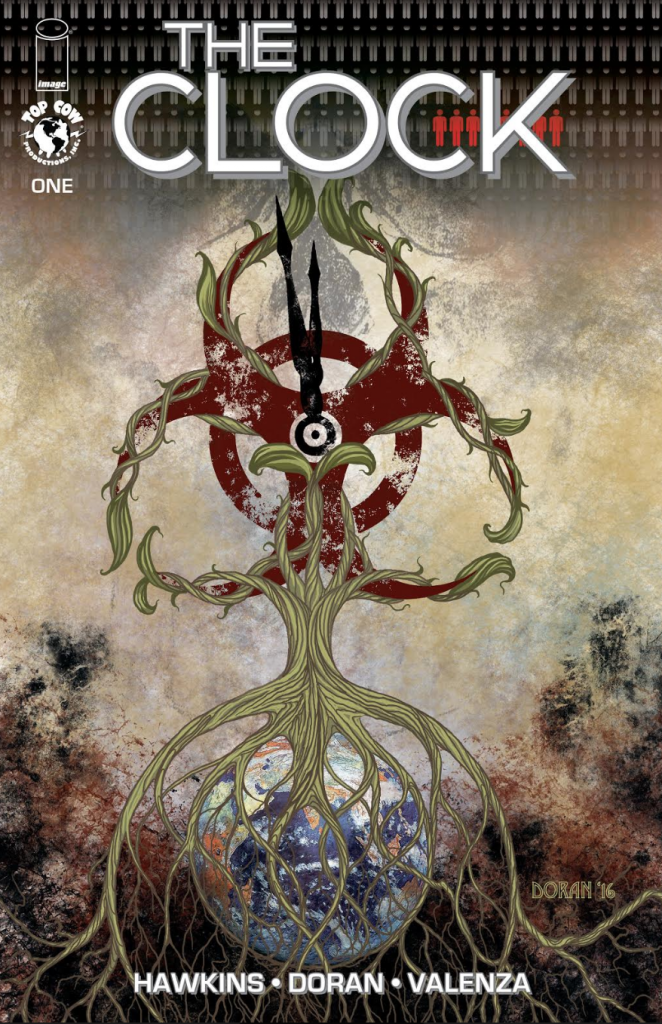
Anthony Pollock: So tell me about the process and what it’s like working with Colleen Doran.
Matt Hawkins: She’s amazing. I really enjoy working with her. I’ve known her for 30 years and met her in the very early days of Image comics when Image just started. I was always a fan of her art. She and I were friends when I started doing my science books. So I sent her the basic plot idea of The Clock and she said, “Wow, this is so foreign to anything I’ve ever done. I would love to do this with you like these. This is exactly the kind of project I don’t get offered.”
I’m like, Great, let’s do it. Working with her is pretty much a dream. I really love her character expressions and faces. Someone pointed this out to me the other day and I didn’t really realize it, but if you look at the totality of all the books I’ve done, about half of them were drawn by women artists.
Anthony Pollock: Do you prefer working with male or female artists?
Matt Hawkins: I would say female artists because of the way they depict sexuality. Especially since the romance stuff that we do with Sunstone and Swing, the readership for that is primarily women. You know, my science fiction stuff. The readership is primarily men, but, ah, I have found that women tend to do better facial expressions.
Some guys think draw sexy and sometimes they’ll think sexy in their mind is Playboy or something like that. That’s guys. That’s where our our minds go. Whereas women, they think of it differently. The characters and designs are more sensual. Personally, I like them better.
I find the ‘cheesecake stuff’ to be distracting. I don’t mind it. I understand why people like it and that’s what floats their boat. I’ve just never really understood those comic book desires because there’s 10 billion free hours of porn on the Internet. Why do you do that? Hey, I don’t know it. Just one of those mysteries that confounds me.
Anthony Pollock: You just touched on world building and artists. How writers spend too much time on world building. And one thing I touched on in my review of the first issue is that by not depicting a world so far in the future you’ve negated the need to world build, but at the same time, by default, you’ve managed to world build. Have you thought about that conundrum?
Matt Hawkins: That’s happened as a result of off the story. Most of the stuff I write does take place in the present day, and most of the characters I write are normal people thrust into extraordinary circumstances. I’ve never been really a fan of superheroes.
I understand why people like them. They’re like a modern mythology, but it seems kind of silly to me. If people want to read and watch, the movies that’s great. But it’s not what I want to write. It’s not what I want to read. I like stories about real people in the extraordinary circumstances and the human condition. and and, ah, you know, succeeding and surviving despite the odds, You know, um, and something like half the world population being wiped out by a weaponization of cancer. That’s a shitty circumstance. And the fact that we’re in this Covid-19 World is kind of fascinating to me. I actually tweaked the fourth issue a hair because of stuff I’ve observed over the last few months and to make it just a little more realistic.
So that’s it’s interesting when you know art imitates life. Life imitates art. If I see it all the time. As I’ve gotten older, I feel like I really enjoy the creative process. I like collaborating with artists. I think I feel as a writer, I’m usually and this is the one thing I try to explain to other comic writers is you’re actually writing for one person, the artist. When you’re writing a comic, you’re writing for one person, that person then interprets the work and then you are collectively doing it for the world audience.
And it’s really important for a writer and an artist working together. It’s like a marriage, you know. It’s all about communication, trust and honesty. Colleen Doran really likes full script plots and getting detailed breakdowns. The more the better.
Anthony Pollock: Where’s things sitting with Top Cow and Image at the moment? Are you having that discussion around going back into the office or are you looking at every working from home in the long term?
Matt Hawkins: Well, I guess you know quite a few people do, but some don’t. But what? What’s happening there with that? I guess that company dynamic Well, image has our hat. I don’t know how many employees they have now. I’ve not talked to them lately, but they had a lot of employees and staff in a big office up in Portland. I know there’s been a lot of discussion, you know, with all this stuff hit and then Diamond just shut down.
We went from having a bunch of products in the pipeline that we were expecting to come out and get paid for. So having that not coming out and then on top of that, we stop getting paid at all. So it’s been a brutal month. Fortunately, we were able to weather it. I usually work from home anyway.
We have an office but we don’t go to it very often. It’s more like a business office. Most of what I do any more creative work is done at home. I was out and driving on the freeway last night and I was just sailing. I was like, Wow, this is great because everyone’s at home, you know? Covid-19 is just weird.
Anthony Pollock: I think it’s those moments where the pandemic situation really sets in. You think to yourself this is what a George Romero movie would be like in real life. Isn’t it bizarre?
Matt Hawkins: It is. I’m getting dangerously near to the point where I don’t want to live in Los Angeles anymore. My sons are all grown. I’m recently divorced. I work from home and the reason why I used to be in L. A was because of other conventions in the business. But I could live anywhere in the world as long as I’m 30 minutes from an airport. You know that can travel because once the one thing that sucks for me and for talk out right now is we make a lot of money at conventions.
Business has been booming for us over the last 10 years. I had 18 shows scheduled this year 18. I like doing these shows because usually they give me a free table. They’ll fly me out, give me a hotel room, and so only thing it costs me is I have to ship my books. Doing the conventions here in the US is very profitable for us. I just bring the books. I sell them and talk to fans. It’s a win win! I mean it’ll pick back up again. Probably next year. I’ll be surprised if there really any shows this year all.
Anthony Pollock: Thanks for your time.
Matt Hawkins: Thank you so much for having me.
If you buy something from a link, we may earn a commission. This is used to help maintain the site and create more content for you!


